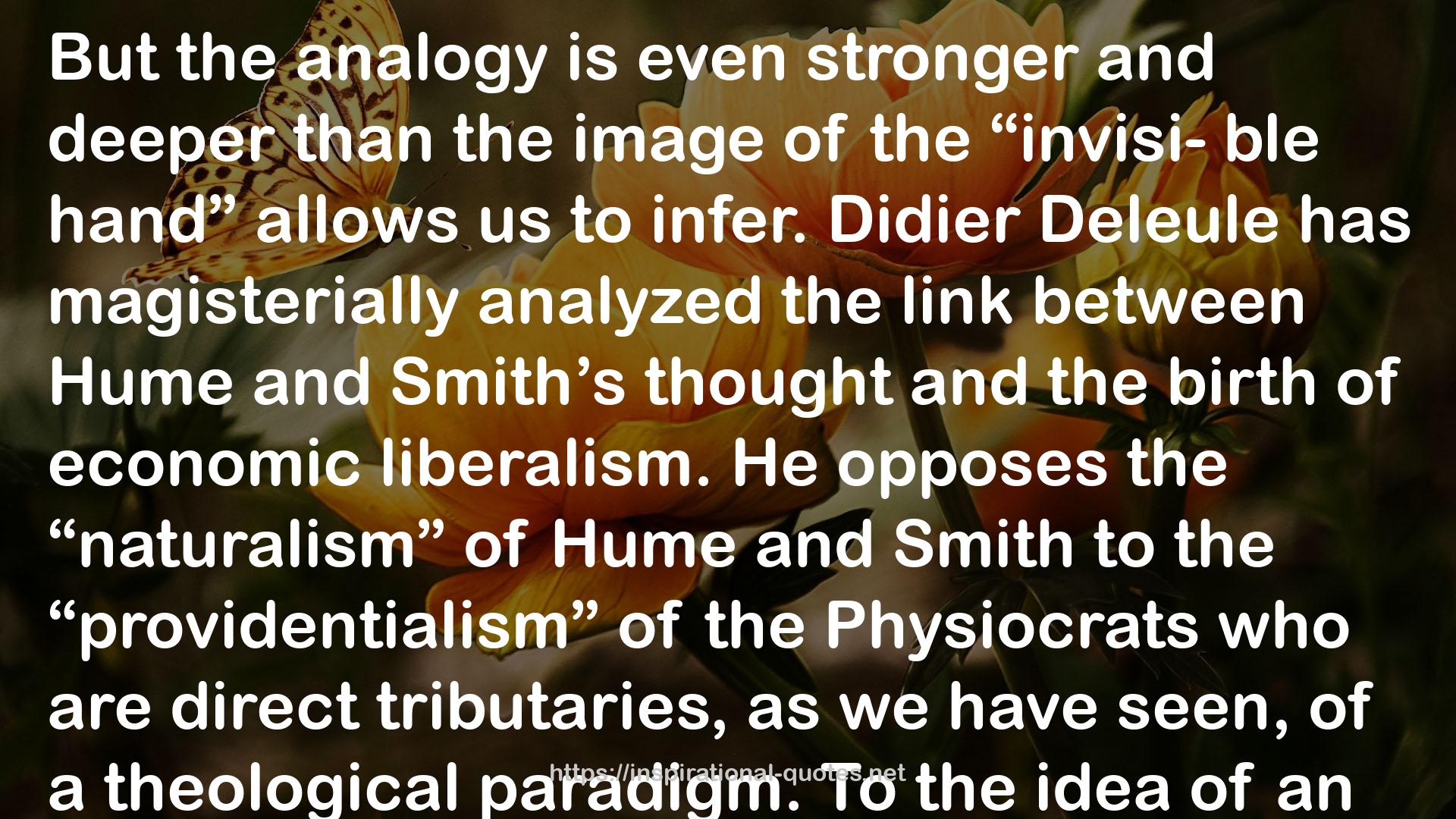" But the analogy is even stronger and deeper than the image of the “invisi- ble hand” allows us to infer. Didier Deleule has magisterially analyzed the link between Hume and Smith’s thought and the birth of economic liberalism. He opposes the “naturalism” of Hume and Smith to the “providentialism” of the Physiocrats who are direct tributaries, as we have seen, of a theological paradigm. To the idea of an original divine design, comparable to a project developed in the brain, Hume opposes, as we have seen, that of an absolutely immanent prin- ciple of order, which functions instead as a “stomach,” rather than as a brain. “Why,” he makes Philo ask, “can an ordered system not be woven out of a stom- ach rather than a brain”? (Deleule, pp. 259 and 305, note 30). If it is probable that the Smithian image of the invisible hand is to be understood, in this sense, as the action of an immanent principle, our reconstruction of the bipolar machineof the theological oikonomia has shown that there is no conflict between “provi- dentialism” and “naturalism” within it, because the machine functions precisely by correlating a transcendent principle with an immanent order. Just as with the Kingdom and the Government, the intradivine trinity and the economic trinity, so the “brain” and the “stomach” are nothing but two sides of the same apparatus, of the same oikonomia, within which one of the two poles can, at each turn, dominate the other. "
― Giorgio Agamben , The Omnibus Homo Sacer
